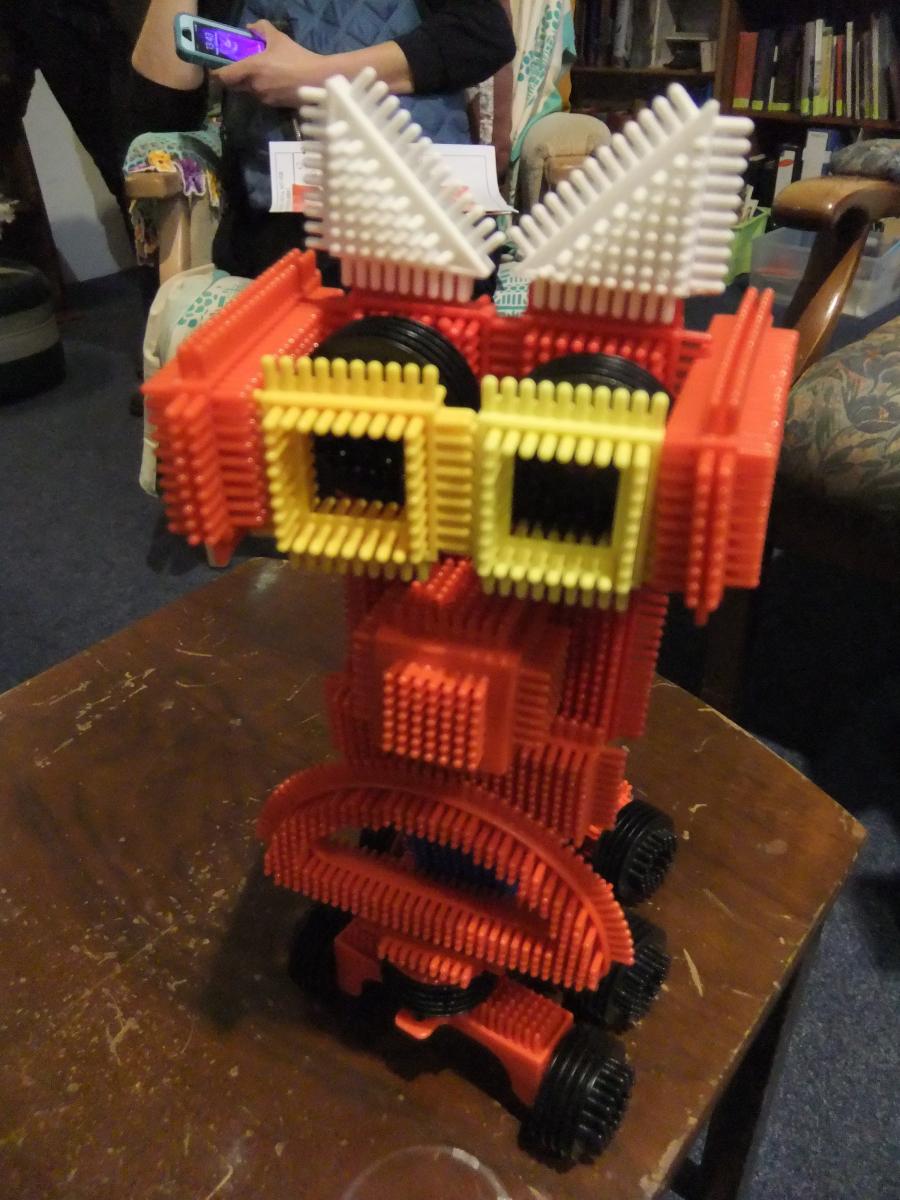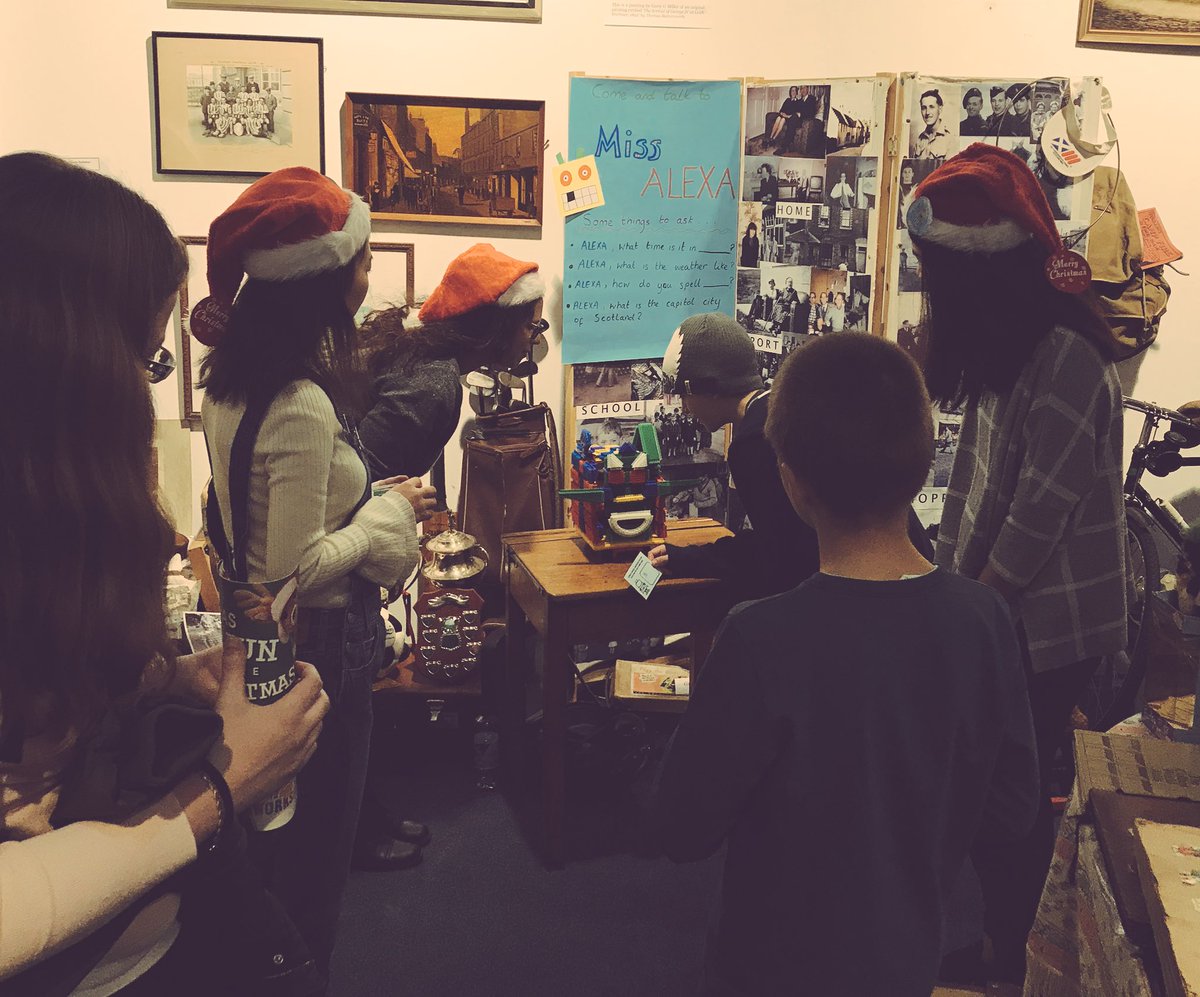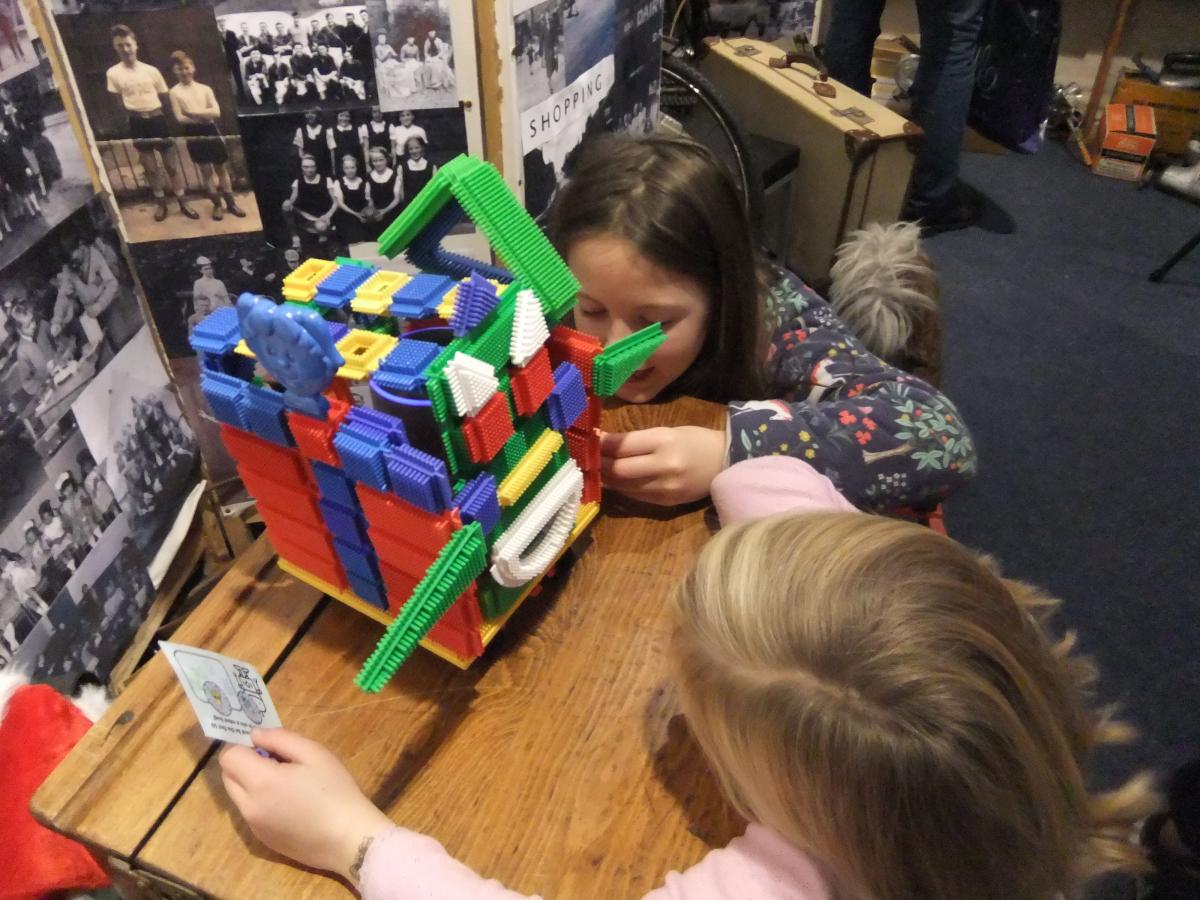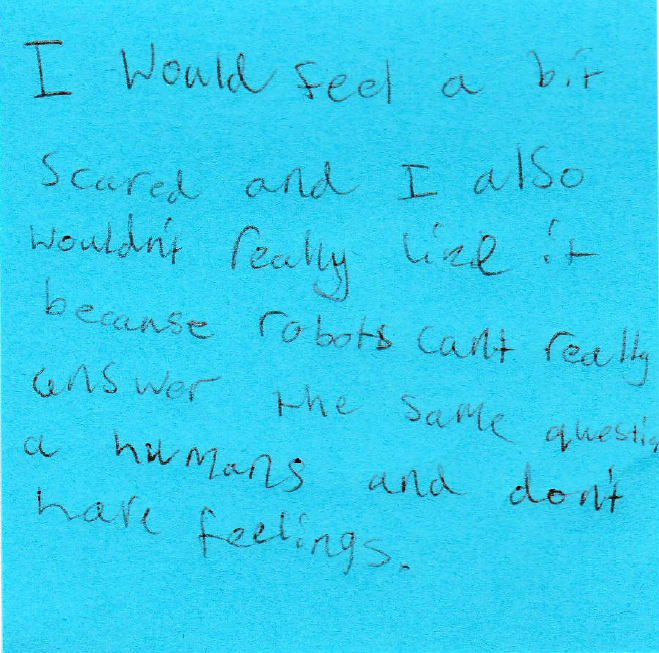
Help! My Teacher Is a Robot! – Children’s Thoughts on Teaching Automation
by Yi-Shan Tsai
Will robots take over teaching at schools? What will it be like? Will our lives be better? Researchers from the Centre for Research in Digital Education at Moray House School of Education participated in the 2017 ESRC Festival of Social Science on 11th November 2017 to explore answers to these questions through a series of fun activities for children at ages 5 to 12. This family event was held at Ocean Terminal and attracted 140 participants. This blog post will review the highlights of each activity on the day and children’s responses to ‘teacher-bots’.
Storytelling
The storytelling station featured three different children’s stories about robots, with follow-up activities including comic drawing and Lego building. Some children and parents agreed that robots could be great helpers to assist humans with mundane tasks, while some children associated robots with superpowers. A participant built a teacher helper robot (Figure 1) that could help teachers distribute exam sheets and carry out other routines.

A teacher helper (the triangular antennae are receivers of orders). Photographer: Yi-Shan Tsai

Children listening to a robot story. Photographer: Yu Chen
Another participant drew a comic strip about two students’ first encounter of a robot teacher who curiously turned from a human-like teacher into a star. The story was yet to be continued as part of the participant’s school writing project. We were thrilled by the participants’ imagination and their excitement over the idea of teacher-bots.
Miss Alexa
The Miss Alexa station presented Alexa as an intelligent robot teacher that can answer (or attempt to) all the most puzzling questions.

The children were queuing to speak to Miss Alexa. Photographer: Lewis Hou, Leith Labs
Although younger children required more guidance at the start, they were quick to pick up the way to communicate with Miss Alexa, such as observing the blue light that signals the receipt of a message. Some young children were intimidated by a talking robot, but older children were more positive about robots being ‘good helpers’ in the classroom.

The children asked, "Miss Alexa, why are you called Alexa?". Photographer: Yi-Shan Tsai
Mind mapping
The mind mapping station gave children the opportunity to comment on the prompt – “Robots are coming to steal your teachers.” Responses from the participants were polarised. Some were very excited by the idea because they did not like to go to school, while others were not convinced by the likelihood of it because robots were not meant to be programmed to do so.
Mind mapping feedback
Quite a few participants also expressed positive attitudes about the help they could receive from artificial intelligence. Although some participants felt negative about the lack of emotional intelligence in robots. We also received a practical feedback, perhaps from a parent – “Doesn’t matter. We don’t have enough teachers anyway!”
Vox pops
The vox pops station invited children to tell us about their thoughts on robots in general, what it would be like to have a robot teacher, and what might a robot be like in twenty years from now. In general, children thought that robots are intelligent and can answer difficult questions instantly. While they could be very efficient as a teacher, they could also be a bad teacher who is less patient with students and rather strict. Nine-year-old Amy gave the reason, “Robots should not be teachers, cause they are too intelligent, and if somebody is too intelligent, they want to stuff all their intelligence into somebody else’s brain.” Most children believed that robots are particularly good at math and science, but bad at creative work, such as writing and arts. Some children also pointed out that robots would not be good at physical education because they would be noisy and cluttering around. For example, five-year-old Henry suggested that robots would be bad at doing back flips, and eight-year-old Wynda believed that robots would be bad at running because “they carry so much weight”. When asked what might robots be like in the future, the children had quite mixed views – robots could potentially take over the earth, or they could be very helpful to humans in everything. However, before that day comes, some children pointed out that we need to work harder on programming robots because “practicing does make perfect”, according to eleven-year-old Pherson.

Researchers from the Centre for Research in Digital Education. Photographer: Yi-Shan Tsai.
This half-day event marked a success in engaging children and parents with issues and research around the adoption of automation technology in education. We heard about hopes and worries from children about a digital future where robots take over the teaching job. We also saw excitement in children’s interaction with technology and imagination in picturing the near future. We look forward to coming back to next year’s Festival of Social Science and learning more about children’s thoughts on ‘teacher-bots’.

